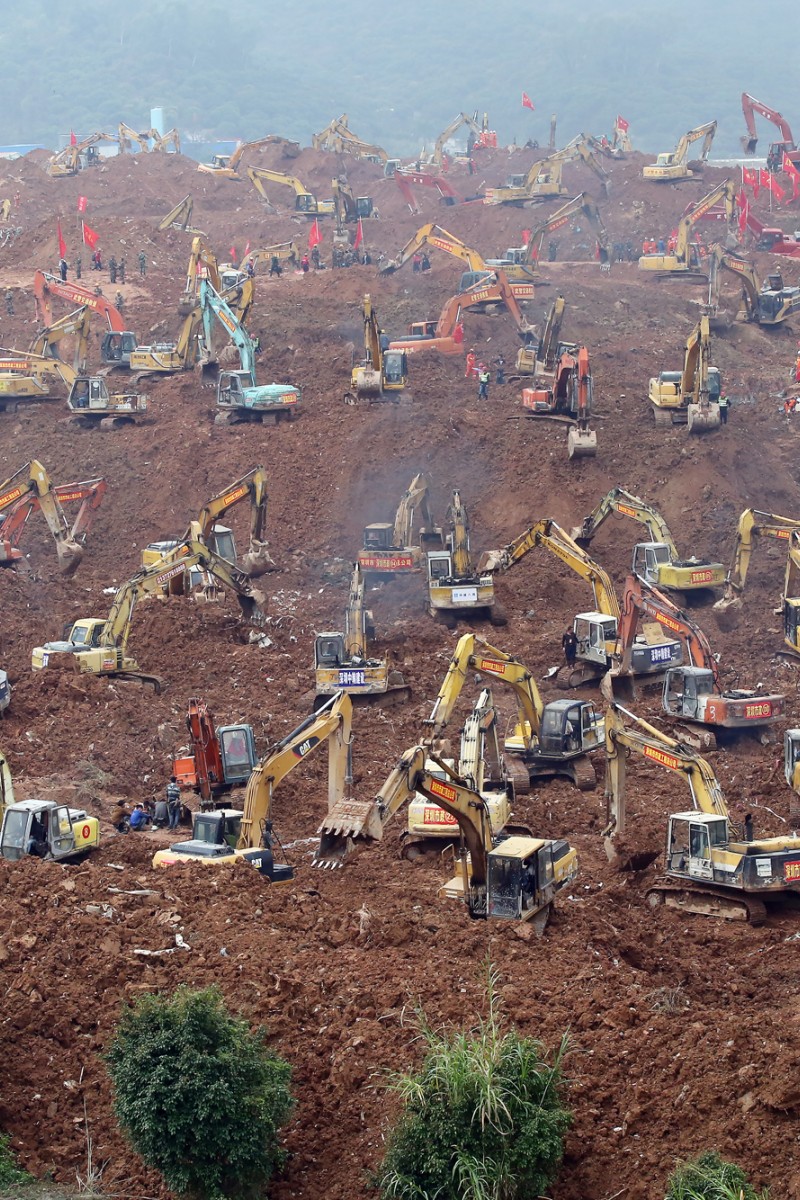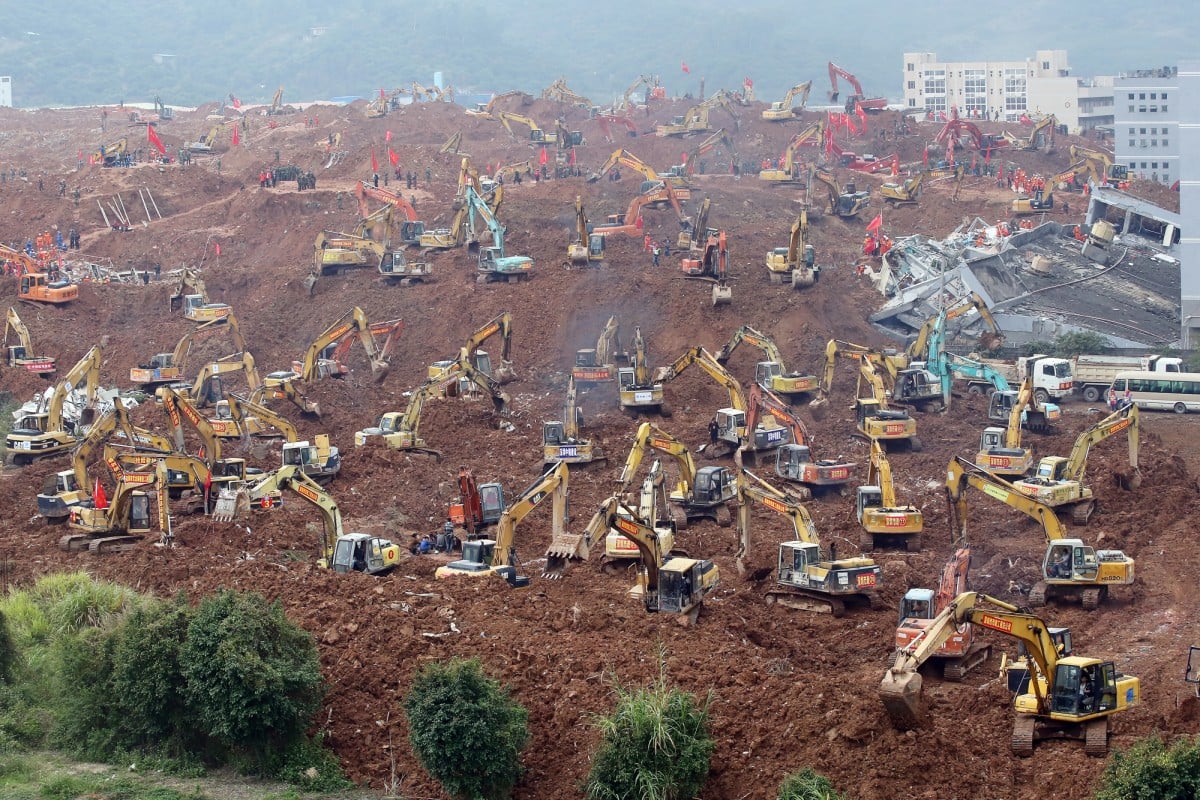
Shenzhen landslide: first survivor pulled from wreckage three days after disaster
The landslide left 76 missing, and the disaster's first survivor was rescued Wednesday morning
 Rescue workers use excavator to dig and search among the debris of destroyed buildings after a landslide hit an industrial park in Shenzhen.
Rescue workers use excavator to dig and search among the debris of destroyed buildings after a landslide hit an industrial park in Shenzhen.Rescuers dug out the first survivor of the Shenzhen landslide disaster early on Wednesday morning after three days of searching, state media reported.
The survivor, a 19-year-old migrant worker Tian Zeming from Chongqing, had been trapped for about 67 hours since Sunday morning’s disaster. He was located by rescuers at about 3.30am on Wednesday, and pulled from the debris at 6.40am. He was conscious, mainland media reported.
Tian, who is now recovering in hospital, was among the list of 76 people that were reported missing following the disaster. According to Nanzao.com (the chinese version of South China Morning Post) Tian was rescued from under eight metres of debris, and had suffered severe head injuries. He had a weak pulse but was able to speak during his rescue.
This discovery of the first dead body from the disaster, identified only as being male, came on Tuesday as the rescue command centre said there was no danger of a second disaster at the site. A statement that came after workers from the China National Petroleum Corporation cleared natural gas in nearby pipelines overnight.
Police also detained a vice-president of Shenzhen Yixianglong Investment and Development on Tuesday afternoon and took away the firm’s computers, mainland media reported. The firm owns the operation and management rights of the construction-waste dumping site in Hongao village outside Guangming district.
At least 33 buildings were damaged by or buried under the landslide on Sunday that covered more than 380,000 square metres of land.
A Shenzhen government official said on Tuesday that local community authorities were verifying residents’ identities.
The desperate families of others still missing believe Tian’s rescue has offered some hope that other survivors will be found.
Zhou Suqing, 48, a migrant worker from Hunan, narrowly escaped the landslide, but her husband, Hu Wenhua, 49, was not so lucky.
“He was just behind me, but when I turned around to check on him, he was already buried under the mud," said Zhou. “I know the exact spot where he was covered. I kept trying to tell everyone in charge about it, but no one would take my words seriously,” Zhou said.
The place where Tian was found was likely to be close to the place where her husband and a dozen of other people were buried alive, she said.
Zhou and other relatives have urged the government to speed up its rescue efforts, but said they were now completely barred from getting close to the site of the landslide.
The authorities needed to communicate closely with people who escaped the landslide, because they had first-hand information about where trapped people might be.
Rescue workers have continued their efforts to find survivors, identifying 16 critical digging zones as they used radar tools to scan for signs of life.
There were more than 4,000 rescuers on the ground on Tuesday – including some 2,100 armed police – as well as 190 excavators and 235 fire engines and ambulances.
The number of missing people was brought down to 76 from 85. Of them, 73 had been identified, most of them migrant workers from Henan, Hunan and other parts of Guangdong.
Survivors and victims’ families alike criticised what they saw as inadequate rescue efforts. Relatives of those missing questioned why work was suspended from Monday 11pm until 4am on Tuesday despite the authorities’ promise that the efforts would go on through the night. The period is considered part of the “golden hours” for finding survivors.
Some relatives said they had climbed approached closer to the site of the landslide to see how the rescue work was progressing, only to find the excavators not doing anything.
Attempts to post photos of the rescue efforts on mainland social media platforms such as Weibo were blocked, the families said.
Some relatives said they had dared not leave the site on Tuesday in case they were prevented from returning because of the heavy police presence in the area. “No one has told us where we can stay or where to get information and from whom,” one angry relative said.
